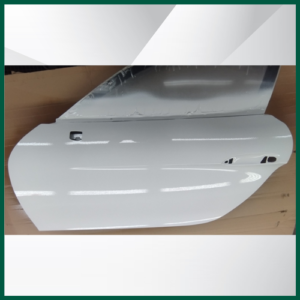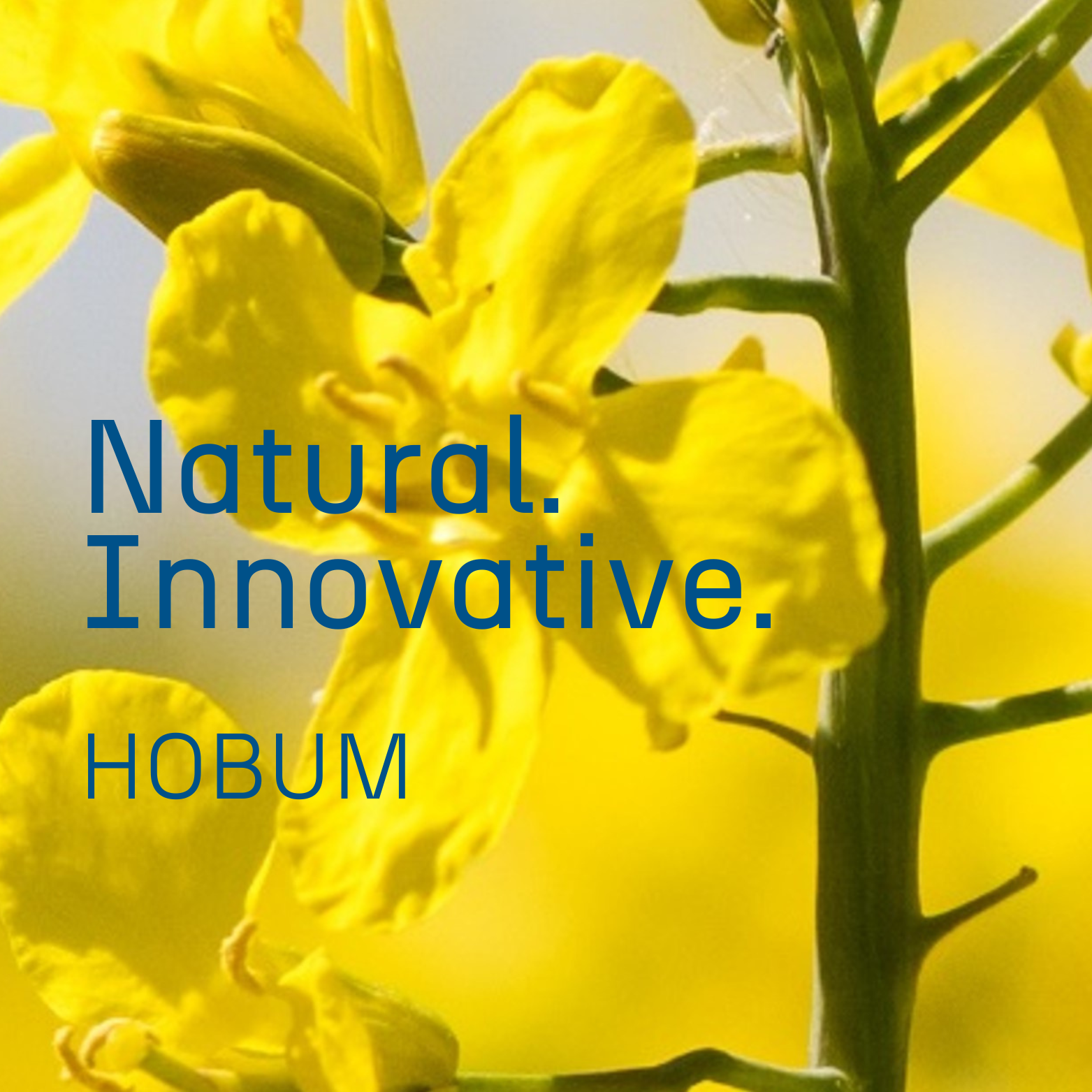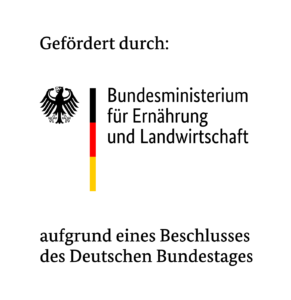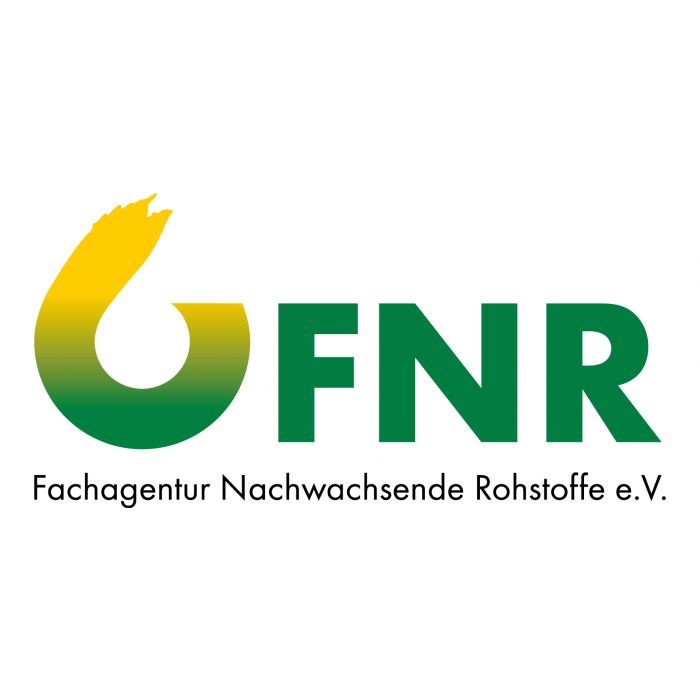News November 2023
Dear friends and business partners,
After 15 months of parental leave I am delighted to be an active part of the HOBUM Team again. I am impressed by what has changed during this time: so many processes have been developed further, so many projects completed, and new exciting ones started.
More than three years ago, we joined the United Nations Global Compact as a sign of our long-term commitment to greater sustainability. Against the backdrop of current global challenges, it is particularly important for us to reaffirm our commitment to greater sustainability and to the ten principles. For this reason, we are now a member of the UN Global Compact Netzwerk Deutschland e. V. association!
In addition, we are already implementing the requirements of the EU Deforestation Regulation EU 2023/1115, which will come into force on December 30, 2024. You can read more about this in the first article “Biobased raw materials – it’s all about the origin”. We also report on our funded projects Algoform and give you an update on how far we have come with our project partners in BioResinProcess.
Sincerly,
Elisabeth Meints
Technical Marketing Manager

Information on the planned toll increase

From 01.12.2023, a toll increase for transportation on German trunk roads will come into force.
The almost doubling of the toll was decided with the votes of the traffic light coalition in the Bundesrat
to finance the maintenance and expansion of the rail network, among other things.
The upcoming costs must be borne by the companies that commission transportation.
This change will affect your prices in future. Self-collectors will remain unaffected.
We will not pass the toll increase on to you from 01.12.2023, but from 01.01.2024 with your new quarterly prices.
Please do not hesitate to contact us if you have any questions.
Contact:
Trixi Irmscher
Inside Sales Manager
tirmscher@hobum.de
Bio-based raw materials – it’s all about the origin

Biobased raw materials have been used for ages and were important pioneers in the success of petrochemicals. Even as petrochemical feedstocks became more diverse, biobased feedstocks could not be completely replaced due to their performance. In recent years, there has been renewed interest in biobased feedstocks. The climate crisis and the finite resource of crude oil are accelerating this necessary paradigm shift. With regard to climate change mitigation, it is necessary to ensure that biobased alternatives reduce the carbon footprint.
Soy production has grown steadily in recent decades. Driven primarily by rising meat consumption and the resulting higher demand for protein-rich feed, in the form of soybean meal. To meet this demand, precious rainforest has been cleared. The conversion of forest areas releases immense amounts of greenhouse gases. As a result of the decreasing areas less CO2 can be stored. In particular, the consumption of beef, palm oil, cocoa and coffee in the European Union and other industrialized countries is driving deforestation and forest degradation worldwide. The European Union wants to put a stop to this by banning raw materials and products that contribute to deforestation from the market.
On May 31, 2023, the EU Deforestation Regulation EU 2023/1115 was published and will come into force from December 30, 2024. It obliges market participants to design the entire supply chain deforestation-free and ensure this through documentation. HOBUM already offers deforestation-free polyols, epoxidized oils and their esters. For this purpose, we process soybean oil certified by the Round Table on Responsible Soy (RTRS) Association into Merginol and Merginat products. This certification ensures that soy plants are grown on land that has not be cleared after December 2020 and that responsible working conditions and agricultural practices are observed along the value chain. In addition, we offer a “new environmental option” grade for all soybean oil-based products. For our neo quality, we focus on more regional sourcing and processing. Merginat neo and Merginol neo products are manufactured in a batch process using soybean oil produced in Germany. The seed used comes from European cultivation. Together with shorter transport distances, emissions are reduced to such an extent that European soybean oil produces only one-third of the emissions in terms of CO2 equivalents compared with non-certified, international soybean oil.
Soybean oil is an important CO2 storage per se. The soy plant converts CO2 to biomass as it grows (see figure). For fossil oil, this process occurred over 60,000 years ago. At the end of life of petrochemical-based products, this CO2 is released again. Since more CO2 has been released into the earth’s atmosphere in recent decades than has been sequestered, the earth is warming up. The use of biobased raw materials as chemical building blocks is now helping to sequester CO2 from the atmosphere. This makes the material use of biobased rather than petrochemical feedstocks a key element of decarbonization.
The soybean has a high meal content of about 80%. Soybean meal contains a lot of high-quality protein and is thus an important source of protein for livestock. About 20 % oil can be obtained from the soybean by extraction. In the European Union, 53% of soybean oil is used for food, 43% for biodiesel and only 4% for industrial applications. There are some concerns that if soybean oil is used for industrial applications, the resources will not be sufficient for food production. In the overall picture, material use is preferable to energy use because CO2 is stored longer over a life cycle with material use. The use of biobased feedstocks based on food and feed crops is discussed in detail in the Renewable Carbon Initiative study “Use of food and feed crops for biobased materials and the related effects on food security.”.
We as HOBUM have been producing novel, biobased materials from vegetable oils for applications in various fields for more than 60 years as a family-run company in Hamburg. Formulations with these biobased products meet the highest requirements, some of which cannot be met with petrochemical building blocks. The combination of defined introduced reactivity and the natural hydrophobicity results in a large and flexible toolbox to meet or exceed the desired properties. The modification possibilities are far from exhausted.
For questions about epoxidized esters and oils, as well as polyols made from deforestation-free soybean oil, feel free to contact Elisabeth Meints, Technical Marketing Manager, emeints@hobum.de.
The following two projects are funded by:
Collaborative project: Algae-based, thermoformable natural fiber matrix semi-finished products with duromer property profile

As part of our collaborative project in cooperation with scientists from the University of Kassel, we are pleased to present our project: “Algae-based, thermoformable natural fiber matrix semi-finished products with duromer property profile”.
This project is funded by the German Federal Government and accompanied by the agency for renewable resources.
Our research work focuses on converting algae, in particular bladderwrack, into bisphenol-A-free epoxy resins. For this purpose, we extract the natural phlorotannins from dried algae and transform them into epoxy resins in a downstream process. These epoxy resins are then cured using suitable hardeners made from renewable raw materials.
In combination with linseed fiber fabric, we use them to develop natural fiber composites (NFK), which we modify chemically so that they can be hot-formed. This means that the NFK sheets can be formed into three-dimensional structures in hot presses. These reshaped natural fiber composites are called organosheets and are expected to replace metal sheets in various applications to enable weight and CO2 savings.
Our goal is to make a significant contribution to the development of sustainable materials and the reduction of the ecological footprint through these research endeavors.
Ready to Race: BioResinProcess

We are a partner in the collaborative project “Bio-based Resins for the Serial Processing of Fiber-Reinforced Components (BioResinProcess)”.
The project aims to create a sustainable car door with a high proportion of renewable resources for a test racing car.
The special feature of the door is the manufacturing process and the material. The door is manufactured as a natural fiber composite using the resin transfer molding process from flax fiber and an epoxy system. The epoxy system was developed by HOBUM chemists in collaboration with chemists and engineers from the Fraunhofer Institute WKI in Braunschweig and Hannover. Some doors have now been manufactured and are available for testing on the race car. They are equipped with a paint that is also made from renewable raw materials from HOBUM and was developed and applied by the chemists at the WKI Braunschweig.
The door is thus “Ready To Race” for the 2024 racing season.
Your opinion is needed!

Highest service standards for our customers are of course a matter for HOBUM. That is why it is important to check the effectiveness of internal service measures. This not only helps to ensure your satisfaction, but also to discover potential for improvement.
In doing so, we ask for your support and welcome your participation in our survey.
Participate now
(Duration approx. 5 minutes)
Follow us on Instagram!
Get insights “Behind the Scenes” ! 🙂 Click here to go to our channel: @hobum_oleochemicals
Do you have any questions about our products?

Book an appointment with us online under this link.
We look forward to the exchange with you!

Newsletter Coordination
Eliane Aspiazu de la Vega
Marketing Assistentin
Email: easpiazu@hobum.de
Would you like to find the next newsletter directly in your email inbox? Register here.



